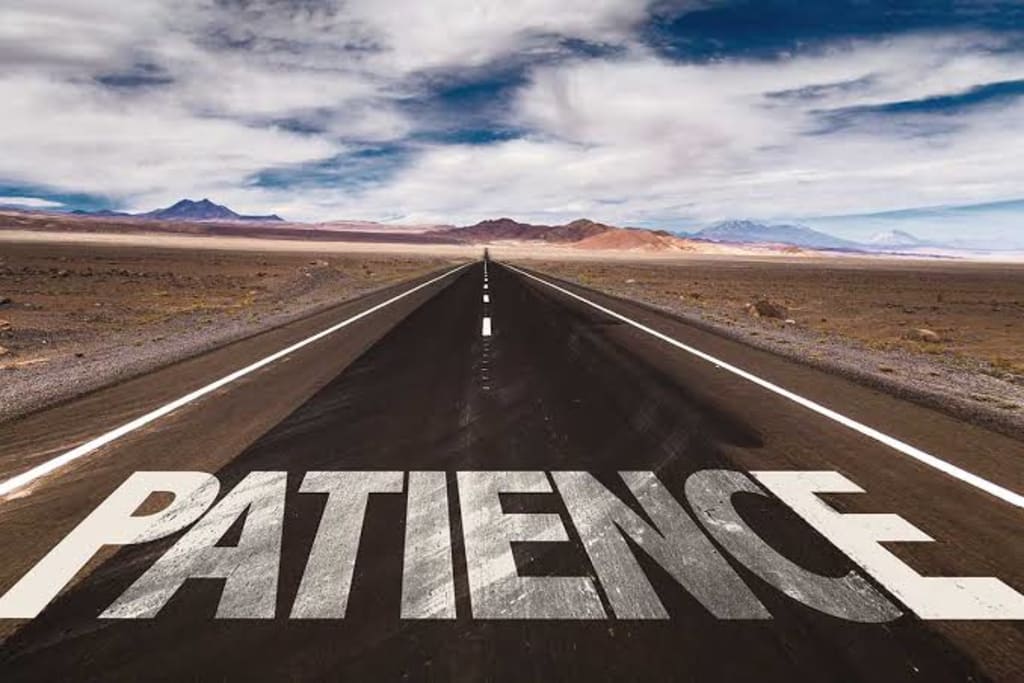"The Key to Emotional Well-being: Building Resilience and Cultivating Patience"
Patience and Emotional Resilience

Emotional well-being is a vital aspect of our overall health and happiness. It is the ability to cope with the challenges that life throws at us, to bounce back from difficult situations, and to maintain a positive outlook. Emotional resilience and patience are two key components of emotional well-being, and when developed together, they can help us navigate the ups and downs of life with grace and ease.
What is Emotional Resilience?
Emotional resilience is the ability to cope with stress and adversity. It is the mental and emotional strength that enables us to bounce back from difficult situations and maintain a positive outlook. Emotionally resilient people are able to regulate their emotions and thoughts, and they don't let setbacks define them. They understand that failure is a part of life, and they take it in stride. They are also able to handle stress and pressure in a healthy way.
Why is Emotional Resilience Important?
Emotional resilience is important because it enables us to cope with the challenges of life. It allows us to bounce back from setbacks, and to maintain a positive outlook, even when things are difficult. Emotionally resilient people are better able to handle stress and pressure, and they are less likely to experience negative mental health outcomes such as depression and anxiety. They are also more successful in their personal and professional lives.
How to Build Emotional Resilience
Building emotional resilience requires a combination of mental and emotional skills. Here are some ways to build emotional resilience:
- Practice self-care: Take care of your physical, emotional and mental health.
- Develop a positive mindset: Cultivate a positive outlook by focusing on the good things in your life.
- Practice mindfulness: Learn to be present in the moment, and to focus on what is happening right now.
- Be open to change: Embrace change as an opportunity for growth and learning.
- Set and achieve goals: Work towards something that is important to you.
What is Patience?
Patience is the ability to tolerate delay or frustration without becoming agitated. It is the ability to calmly and rationally wait for things to happen, without feeling the need to rush or force the outcome. Patience is important because it allows us to approach difficult situations with calm and clarity, rather than getting caught up in our emotions and acting impulsively.
Importance of Patience in Life?
Patience is an important trait in life because it helps us to approach difficult situations with calm and clarity, rather than becoming agitated or acting impulsively. It allows us to tolerate delay or frustration without becoming stressed or overwhelmed.
Patience is essential for personal growth, it enables us to focus on the present moment, which can help us to appreciate the beauty of life and find meaning in difficult situations. Additionally, Patience can help us to build healthier relationships, as it allows us to communicate more effectively and to understand and respect the perspectives of others.
Furthermore, Patience is a valuable trait when it comes to achieving goals. It helps us to persevere through challenges and setbacks, and to stay committed to our goals even when progress is slow. It enables us to have a long-term perspective, and to realize that success often takes time and effort.
Patience is a key virtue that can help us to navigate the ups and downs of life with grace and ease. It helps us to stay calm and focused, to build better relationships, and to achieve our goals. Cultivating patience in our lives can lead to greater emotional well-being and overall satisfaction.
How Patience Helps in Building Emotional Resilience?
Patience and emotional resilience are closely related, and one can help us to develop the other. Patience allows us to approach difficult situations with calm and clarity, and it enables us to tolerate delay or frustration without becoming agitated. By being patient, we are able to take a step back and look at the situation objectively, which can help us to find a solution. Additionally, patience enables us to focus on the present moment, rather than getting caught up in worries about the future or regrets about the past. This can help us to maintain a positive outlook and to build emotional resilience.
Conclusion
Emotional well-being is essential for our overall health and happiness, and emotional resilience and patience are two key components of emotional well-being. Emotional resilience enables us to cope with stress and adversity, and patience allows us to approach difficult situations with calm and clarity. By developing emotional resilience and patience together, we can navigate the ups and downs of life with grace and ease.






Comments
There are no comments for this story
Be the first to respond and start the conversation.